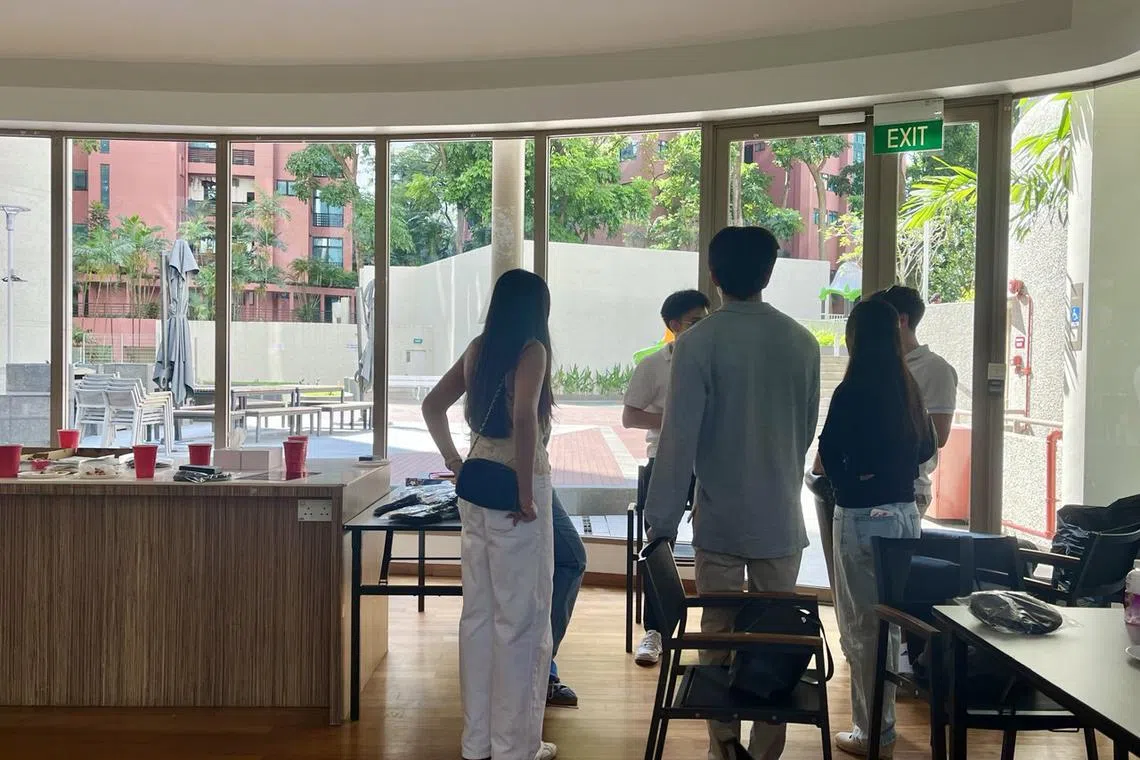Excitement, concern at send-off for S’pore’s Columbia-bound freshmen amid US political uncertainty
Sign up now: Get ST's newsletters delivered to your inbox

The campus protests and recent political turmoil had no impact on their decision to apply to Columbia, a few freshmen told The Straits Times.
ST PHOTO: ANGELICA ANG
SINGAPORE - The wide-eyed Ivy League prospects milled about, exchanging pleasantries and exuberant hellos at a Columbia University send-off for Singapore freshmen on Aug 2.
But this year’s iteration of the annual tradition, held at the function room of the Horizon Towers condominium in Leonie Hill, differed slightly from past editions.
It took place in the wake of a much-publicised crackdown by the US government on the country’s elite universities over accusations of anti-Semitic behaviour on campuses and bias in diversity, equity and inclusivity initiatives.
This followed a wave of pro-Palestinian protests on US campuses in 2024, prompted by the outbreak of the Gaza war between Israel and Palestinian militant group Hamas in October 2023.
For Columbia, negotiations with the Trump administration ended on July 23, with the school agreeing to pay more than US$200 million (S$255 million) to the US government
But the campus protests and recent political and financial turmoil had no impact on their decision to apply to the New York school, a few students told The Straits Times at the event organised by the Columbia University Singapore Students Association. The event had about 15 attendees.
One outgoing freshman, who did not wish to reveal her name, said: “A lot of institutions have recently had massive protests. But at the end of the day, you get the same quality education, world-class professors, and opportunities.
“In the grand scheme of things, these events don’t impact your education to a degree that you would think they do.”
Another remained upbeat, saying: “I’m excited but also nervous about the whole idea of going to college. It’s about exposing yourself to new things, new people, new friends, new activities, and stepping outside your comfort zone.”
In May, the Trump administration asked its overseas missions to cease scheduling fresh appointments for student and exchange-visitor visa applicants. The move, said Reuters, came as the administration sought to ramp up deportations and revoke student visas as part of its wide-ranging efforts to fulfil the US leader’s hardline immigration agenda.
Part of those efforts also included tightening the vetting of foreign students’ social media accounts
Two freshmen told ST that they would be switching their Instagram accounts to “public” before entering the US, to facilitate such checks. They added that they did not mind doing so.
One students’ association committee member who is a current Columbia student and did not wish to reveal his name told ST that some of the matriculating students “have shared some concerns, including visa and safety issues, and whether or not they may be able to express themselves freely”.
He added that the club is hoping to support them as they navigate the transition to university abroad amid the current climate.
Other American universities, including Duke University
Even at Columbia, the environment remains somewhat cautious ahead of the new academic year which begins in September. The campus is gated and security forces are omnipresent, said another students’ association committee member who is also a current Columbia student.
“Most people know that the situation is very sensitive and tense,” he said. “It’s about juggling that tension, while still being at school and trying to live like a normal university student.”



